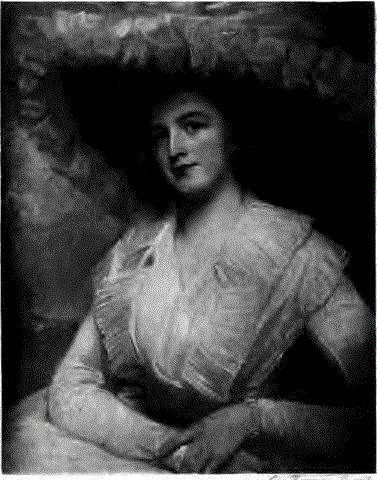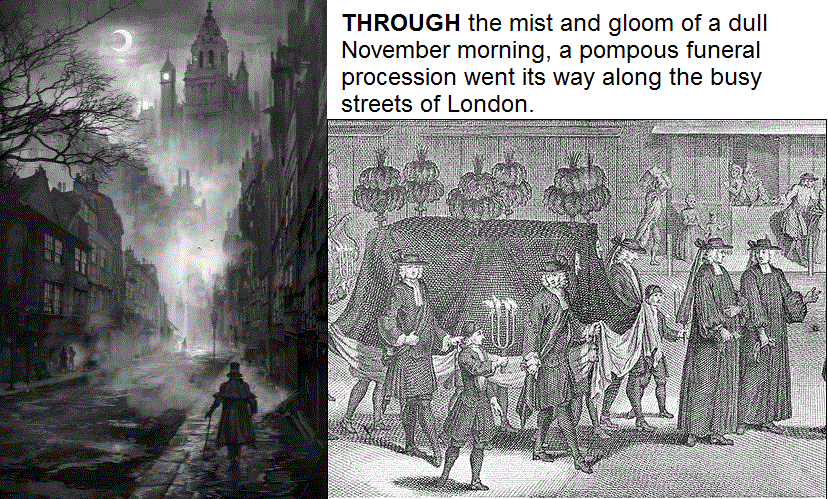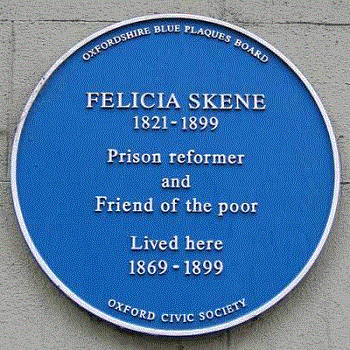 By Felicia Skene. London: Joseph Masters, 1849.
By Felicia Skene. London: Joseph Masters, 1849.

It was a common sightso common that it attracted no attention from the multitude who crowded on its path, as with eager care-worn faces they hurried on in their several avocations; and yet it was a strange sight too for them if they would but have thought upon itthe passing amongst them of that quiet traveller to the realms unseen! For so surely as he was even now moving on to the portals of the land which is very far off, they themselves, with their swift impatient feet, were speeding unconsciously on the same journey.
We say unconsciously, for each one had set before himself some desirable object of attainment for which he toiled that daywealth, fame, ambition, lovesome bright vision, to realize which he gave up unreservedly the redeemless hours of his existence, whilst, with every breath he drew in labouring for it, he shortened the life for which it was to be attained. Yet even as he had done, who was now carried past so helplessly, that his dust might duly be returned to its kindred dustthat living mass of human beings would toil and yearn for their fancied good, till, with strength and energy all spent and gone, they saw the fair phantom of their hopes dissolve in air, disclosing to their view the grave alonethat actual reality for which they had been working! It had been so with him whose rigid corpse now went so still and silently through the noise and turmoil of the world he had loved.
Mr. Maynard had been a wealthy city merchant; in early youth he had been thrown on his own resources, penniless, and well nigh friendless. He was a man resolute of will, and of good abilities; but his mind, having never been directed to the Unseen Truths, had fixed itself entirely on the fleeting realities of this life.
Mr. Maynard had been a wealthy city merchant; in early youth he had been thrown on his own resources, penniless, and well nigh friendless. He was a man resolute of will, and of good abilities; but his mind, having never been directed to the Unseen Truths, had fixed itself entirely on the fleeting realities of this life. He looked keenly into his own position, and he perceived that, in this world, wealth is the one thing needful. He therefore determined to attain it.
From that time his life was given up to this object only. He toiled, he slaved, he speculated; he rose up early, and late took rest; he ate the bread of carefulness; he wasted lavishly his health and strength and intellect; he devoured widows’ houses, and made the orphan desolate: for as his desire strengthened till he grew to be its very slave, he cared little for the injury done to others in its accomplishment–and he succeeded. Man has a mighty power in working out a resolute purpose, be it for good or evil, if his whole soul is concentrated upon it. Mr. Maynard became rich, beyond what he had ever hoped for when he set out on his pilgrimage to the shrine of his god, Mammon; but still he laboured on, plunging into speculation, for to make money was the aim and end of his existence, and he could not stop now. Some dim vision may have been before him of a luxurious retirement hereafter, where he should dwell, surrounded by all the splendour and comfort wealth could procure him; but his health failed him meantime, sacrificed to his laborious and unremitting industry. Death came and took him when his soul was so wrapped up in the cares of life, that this tremendous reality was to him but a far-off haunting shadow, too distant and uncertain to be heeded. Death came and took him, and then it was found that he had gained but one thing with the toil and labour and sacrifice of his whole life; he had earned for himself the gorgeous monument whose ponderous bulk was henceforth to weigh down upon his mouldering remains. To the last hour of his existence he worked like a slave, and this was the sole fruit he reaped from his labours–the costly tomb, wherein his worn and wasted body would fall perhaps a little less quickly to decay than in some green churchyard of holier and humbler aspect.
Mr. Maynard left two daughters. He had married somewhat late in life, for the sole purpose of connecting himself with the father of his bride, the head of a great mercantile house. It was his desire to succeed to this man’s position at his death, and this wish was fulfilled.
A very few years had passed away, and his wife died. Neglected, though uncomplaining, she perished for want of sympathy and affection, as flowers fade when deprived of air and sunshine. Her little daughters were given up to the care of nurses and governesses, and Mr. Maynard required, not unfrequently, to be reminded of their existence. If he remembered them at all in his dying hour, so appalling in its suddenness, it must have been with a pang of remorse, for he had made no provision for them–not from wilful neglect, but simply because he never thought of death at all; it was a contingency which did not enter into his speculations.
He left no will, and the management of his affairs naturally devolved on his partner, Mr. Hardman. By some process of calculation peculiar to himself, this gentleman discovered that all which remained of Mr. Maynard’s capital must now become merged in that of the house. His speculations had in fact ruined him, and the rich man’s orphan children did not inherit from him so much as the cost of that same stately tombstone which Mr. Hardman deemed it his duty to erect over his grave.
Some little property Elizabeth and Agnes Maynard had received at their mother’s death, and this circumstance had induced Mr. Hardman voluntarily to constitute himself their guardian. To do him justice, he was certainly in some degree influenced in his decision by the glimmerings of better feeling, which shone through this worldly man’s profound and inherent selfishness when he thought of the desolate condition of his partner’s daughters.
They sat together now in the darkened room from which their father’s coffin had been carried an hour before, and both were in bitter sorrow. It is a blessed thing, that atmosphere of love which pervades this whole wide restless world, emanating, no doubt, from the unseen presence of Him who is Love, and penetrating, in some one shape or other, into the life of the most forlorn amongst us. Not a flower perishes from the green earth, but the dews of heaven weep over it; not a human being is laid down in the unresisting helplessness of death, but tears are found from human eyes to fall upon him.
Mr. Maynard had certainly done as little to awaken affection or inspire regret as most men, and yet the sobs of his orphan children came thick and fast, as they heard the tramp of the horses which bare him away.


Felicia Skene, who was much inclined to believe in supernatural appearances, recounted that shortly before her father died she found him one November afternoon ‘with a look of radiant happiness upon his fine old face. “Scott has been here! dear Scott! He told me he had come from a great distance to pay me a visit, and he has been sitting here with me talking of all our old happy days together. He said it was long since we had met, but he is not in the least changed” … He went on for some time describing the charming visit his dear old friend had paid him, with a minuteness which was rather startling … How could I tell what it had been? or how could any one express an opinion on such an event?’